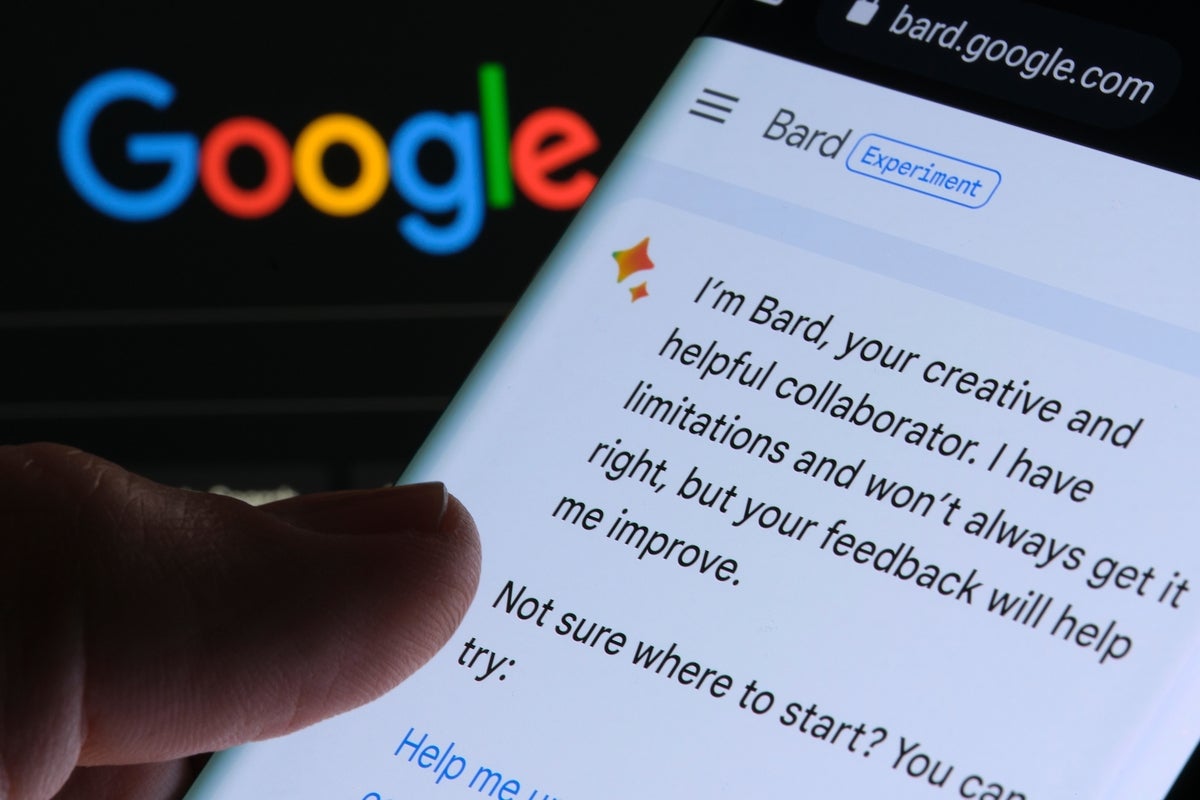Google today announced it is embedding its conversational,Bard chatbot into many of its most popular apps, allowing users to get human-like responses to questions, summarize Gmail messages, and search Google Docs and Youtube.
Bard is in heated competition with other top generative AI technologies, including OpenAI’s ChatGPT and Microsoft’s Bing conversational AI tool (which is also based on ChatGPT). Microsoft has added ChatGPT functionality to its suite of Microsoft 365 business productivity and collaboration apps through its own Copilot chatbot assistant.
Google and Microsoft are going after internal use cases for chatbots to improve employee productivity, and Salesforce is now making a play for their domain, according to Max Ball, a principal analyst with Forrester Research.
“There is value in having a conversation with a smart assistant who can get you answers to all your questions and write it all up for you in an appropriate manner. But when systems can gather specific information that is generally buried in back-end systems, and perform actual tasks, the value goes to another level,” Ball said.
Earlier this month, Salesforce released the latest version of its chatbot, Einstein Copilot; it is a conversational assistant baked into the workflow for every Salesforce application. The app allows users ask questions in natural language, and receive and get answers from proprietary company data from Salesforce Data Cloud.
Like Copilot, which can automate tasks and act as an assistant in Word, Outlook, Teams, Excel, PowerPoint, and other applications, Google said its new Bard Extensions acts as a natural language assistant that can search for information across Google apps. Users can search through Google Docs, summarize Gmail messages, and even help plan trips and check airline prices on Google Flights.
For example, when planning a trip, a user can now ask Bard to grab the dates that work for everyone on a Gmail thread, look up real-time flight and hotel information, use Google Maps for directions to the airport, and even watch YouTube videos of things to do at the destination — all within one conversation, according to Google.
“You could ask Bard to start a trip planning Doc for you and your friends, draft up your online marketplace listing, or help explain a science topic to your kids,” Google said in a blog post.
This is not Google’s first foray into genAI assistants. Last month, the company announced its Duet AI was generally available for Workspace productivity apps. The Duet AI features will cost $30 per user each month, putting the tool's price in line with rival Microsoft’s upcoming Copilot.
Although the Bard chatbot can be used with 40 languages, Extensions will initially only allow queries in English.
With responses in English, users can select Bard’s “Google it” button to double check the search engine’s initial answers. “When you click on the “G” icon, Bard will read the response and evaluate whether there is content across the web to substantiate it,” Google said. “When a statement can be evaluated, you can click the highlighted phrases and learn more about supporting or contradicting information found by Search.”
When a user shares a Bard chat with someone through a public link, they can continue the conversation and also ask Bard additional questions about that topic, or use it as a starting point for their own ideas.
The new features with Bard Extensions is part of an update Google made to the chatbot’s plaform, the PaLM 2 large language model, which allows Bard to respond with improved accuracy.
Forrester’s Ball believes chatbot technology still has a ways to go before it can be considered mature and perform more advanced functions such as placing orders, transferring money between accounts, or booking appointments and flights.
“Generative AI is amazing at talking, but there will need to be other functionality to update CRM systems or manage shopping carts,” Ball said.
The path to maturation of chatbots will likely be:
- Creating a generative AI system to interact with the customer to understand what they want to do or what they need to know.
- Connecting to CRM or other back-end systems to gather specific data or perform transactions.
- Deciding when a human agent is needed, and handing off to that agent with all the required information.
- Proactively seeing that something has changed and checking in with a customer to see how they want to respond. (Your shipment is going to be two days late, should we forward it to the lake house since you will be there over the weekend?)
“It gets bigger and more complex when you start thinking about the potential to manage the LLMs or generative AI systems when different ones are better at different tasks,” Ball said.






